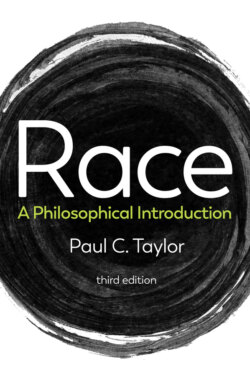Читать книгу Race - Paul C. Taylor - Страница 22
1.8.2 Systems and structures
ОглавлениеOne way to insist on the links between race and specific forms of politics is to analyze race systemically. This means moving beyond the idea that race-thinking is about what goes on in the minds of isolated individuals or in the otherwise empty space between or around isolated sets of individuals. It means exploring the patterned interactions and structured relations in which these individuals and events are embedded.
Scholars like Charles Mills model one form of this systemic analysis when they insist on the dual role of terms like “white supremacy” and “racialism.”10 Like many other terms in political life, these expressions refer to ways of thinking and to modes of social organization. Used in one sense they implicate specific commitments, principles, and values. Used in another, related but distinct sense, they implicate specific institutions and practices. Liberalism as a political ideology is about things like freedom of conscience and the rule of law, while liberal political society is about operationalizing values like these in certain routine ways, involving things like free and fair elections and independent courts. Similarly, the various forms of racialism – including but not limited to white supremacy – will have their different commitments, but they will also be connected to particular institutions and practices. We will consider some of these connections in the pages to come.
Scholars like Kimberlé Crenshaw and Cedric Robinson model another form of systemic analysis when they link racial phenomena to gender and class dynamics. For example, modern chattel slavery was not just about race. It was an economic system that used racial and sexual violence to create and control a low cost, self-reproducing labor force. It generated the wealth that financed European and American industrialization and it was a massive laboratory for the experiments in productivity management, international trade, and transnational finance that global capitalism subsequently refined.11 Engaging race responsibly means considering its relationships to these wider social structures and dynamics, as we’ll see in the pages to come.
